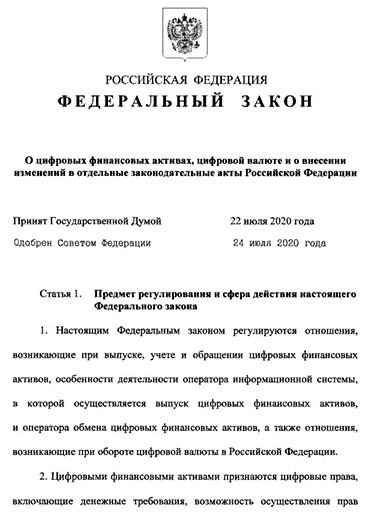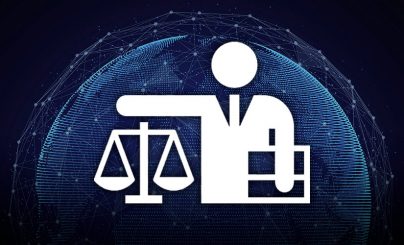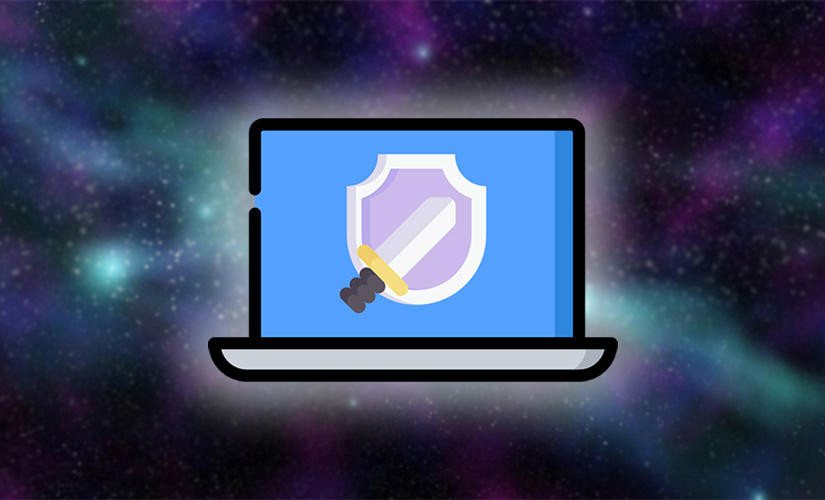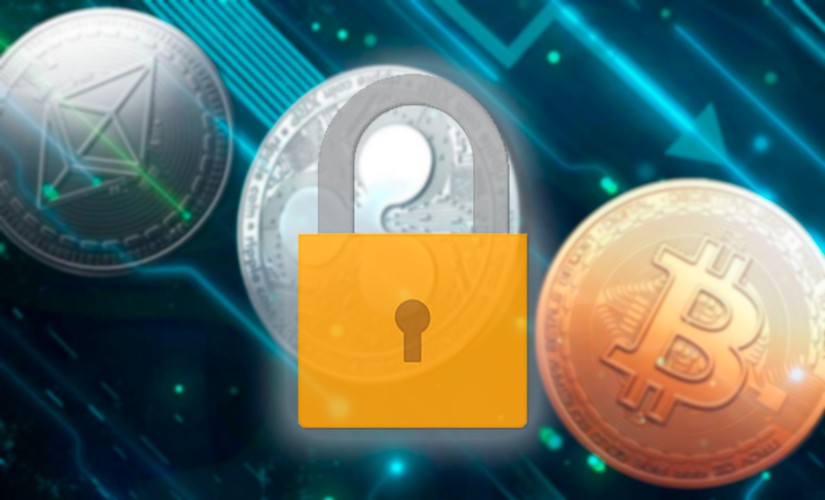Digital assets are increasingly integrated into everyday life. They become objects of investment, means of payment and can act as a certificate of ownership(NFT – non-replaceable fichas used in the trade of digitized art objects). Any economic relations between subjects of economic activity sooner or later lead to disputable situations. The resolution of these conflicts in the real world takes place within the judicial and law enforcement branches of government. Legislators of countries introduce legal norms in accordance with new realities. Therefore, the concepts of cryptocurrency and the court can become a norm in the relations of business entities throughout the civilized world.
Legislative status of cryptocurrency in the Russian Federation
On January 1, 2021, the Federal Law “On Digital Financial Assets” came into force in Russia, according to which they are recognized as property. It also defines restrictions related to the circulation of cryptocurrency, namely:
- The issuance of coins is made only by Russian infrastructure facilities that are under the influence of federal laws.
- Legal entities are prohibited from accepting payment with digital assets for work performed or goods provided.
- Legal protection and court settlements apply only if the tax authorities are informed in advance about the possession of cryptocurrency.
- Advertising the offering of digital currency in any form is prohibited.

Decree No. 5635-U of the Central Bank of Russia set the purchase limit for an individual at the level of 600 thousand rubles per year. All transactions on exchanges and in exchange offices must be accompanied by an identity verification procedure. Income received from the sale of cryptocurrency is declared in form 3-NDFL and is subject to tax at a rate of 15%. Only official reports from exchanges, P2P platforms and bank card statements of the bank cards involved in the purchase are used to determine expenses. Hand-to-hand transactions will not be taken into account when reducing the tax base.
Examples of court practice on cryptocurrency
The settlement of economic disputes and the issuance of judgments are based on the verdicts of higher panels. This allows standardization of law enforcement when considering similar cases. Judicial practice can be evaluated as an independent source of law, which provides a uniform approach in resolving disputes on similar situations, significantly changing the field of law enforcement.
Duncan Jones case
In January 2021, a court decision was issued in the UK, which for the first time allowed tracing and “freezing” of stolen assets. The essence of the case was that investor Duncan Jones decided to invest his money in the ICO of some cryptocurrencies. To do this, he gave remote access to his computer to the advisors of a certain management company Neo Capital. As a result, the money was stolen (64.35 BTC), and the firm itself turned out to be a sham. With the help of experienced lawyers and experts in the field of digital technologies, the investor appealed to the London court, which decided to seize the stolen bitcoins on the accounts of 2 exchanges (Binance and Kraken) and obliged them to disclose information about the owners of these wallets.
5020 $
bónus para novos utilizadores!
A ByBit fornece condições convenientes e seguras para a negociação de criptomoedas, oferece comissões baixas, alto nível de liquidez e ferramentas modernas para análise de mercado. Suporta negociação à vista e alavancada e ajuda os principiantes e os operadores profissionais com uma interface intuitiva e tutoriais.
Ganhe um bónus de 100 $
para novos utilizadores!
A maior bolsa de criptomoedas onde pode iniciar de forma rápida e segura a sua viagem no mundo das criptomoedas. A plataforma oferece centenas de ativos populares, comissões baixas e ferramentas avançadas para negociação e investimento. O registo fácil, a alta velocidade das transacções e a proteção fiável dos fundos fazem da Binance uma excelente escolha para os comerciantes de qualquer nível!
For the first time in the world, security measures were applied to cryptocurrency as traditional property.
OneCoin case
A high-profile trial took place in Germany. It became one of the first in the world during which fraud with digital assets was considered. On the growing popularity of the cryptocurrency market, on September 16, 2014, Ruja Ignatova announced the creation of a project that would eclipse Bitcoin and be devoid of the shortcomings of other coins.
As of 2022, Ruja Ignatova remains at large and is on Interpol’s list of most wanted criminals.
Officially, OneCoin positioned itself as an educational venture and distributed “educational” packages worth between 110,000 and 118,000 euros, with tokens available as a bonus. Users could trade them on an internal platform, as the coins were never listed on any exchange.
Using network marketing for promotion and referral system, in 2 years the founders managed to attract more than 3 million participants from all over the world, who invested 14 billion euros. OneCoin’s revenue from January 2015 to March 2017 is shown in the table below.
| Year | Amount (€) |
|---|---|
The pyramid scheme then collapsed and the founder disappeared with the money on October 25, 2017. However, investors contacted law enforcement agencies around the world.
As a result, a married couple who mediated between investors and Ignatova for €320 million and a Munich lawyer accused of money laundering for the project’s management ended up in the dock in a German court.
The proceedings will still go on for many years, and not only in Germany, but the legal precedent has made history as the first cryptocurrency litigation involving a fraud on a large scale.
David Hedqvist v. Sweden
As of 2021, the only precedent from the European Court of Human Rights regarding digital coins was the outcome of the Hedqvist case. The desire of a Swedish citizen to open a bitcoin exchange for fiat money led to a disagreement between 2 state authorities: the Tax Police and the Fiscal Law Commission. The subject of the dispute was value added tax. As a result, on October 22, 2015, the ECHR issued a ruling on exempting transactions exchanging traditional money for bitcoins from VAT and treated cryptocurrency as a means of payment rather than goods and services.
“Fakeatoshi” and the fate of 1.1 million bitcoins
Craig Wright, the self-proclaimed creator of Bitcoin, is obligated to pay $100 million to the family of his late companion. In early December 2021, a California court in the US ruled in a case involving the misappropriation of 1.1 million BTC (over $56 billion at December 2021 exchange rates). These coins are believed to have been mined by Satoshi Nakamoto at the very beginning of the network’s launch. Since the creation of the first wallet, it has not registered a single outgoing transaction.
Relatives of the deceased claimed that Wright and Kleiman together developed a technical document – Bitcoin White Paper, explaining the structure of the world’s first cryptocurrency, and had equal rights to the extracted million coins. Wright’s defense argued that he had developed bitcoin himself, while Kleiman’s family had no legal claim to the intellectual property.
Wright was found not guilty of embezzlement, but must pay compensation for the use of his former business partner’s corporate rights.
Over the past couple of years, the Australian businessman has claimed several times that he is Satoshi Nakamoto. However, all of his evidence has been refuted.

In Russia, bitcoin acted as property in bankruptcy
The Arbitration Court of Moscow recognized the debtor as insolvent, and the procedure for the realization of property began in respect of him. The financial manager established the presence of a bitcoin wallet, which was confirmed by the protocol of inspection of the history of the web browser.
According to the owner, these funds could not be included in the bankruptcy estate for subsequent realization. However, the court, based on the law on CFA and Article 128 of the Civil Code of the Russian Federation, determined that bitcoin belongs to the category of “other property”. It has economic value for creditors and, accordingly, is subject to compulsory sale.
The debtor was obliged to give the financial manager access to the wallet. Thus, this is the first case in the judicial practice of cryptocurrency in Russia, when digital assets were seized to repay a debt.
US v. Telegram
The launch of Pavel Durov’s Gram tokens was canceled by the decision of a New York court. The essence of the authorities’ claim was that the company failed to disclose information about its financial condition, its business and risks, as required by the Securities Act of 1933. The court prohibited the transfer of tokens bought at the IPO to investors. The launch never happened, and the $1.7 billion was returned. But Telegram is facing multimillion-dollar lawsuits for reimbursement of brokerage costs.
Perguntas mais frequentes
🔑 Can bitcoin act as collateral in Russia?
In 2020, the first loan secured by Waves tokens was issued in Russia under a personal bank loan agreement.
⛔ Can the state ban cryptocurrency?
No. The authorities have the right to restrict its circulation, but it is impossible to completely stop the functioning of the blockchain. As long as there are nodes that keep the network running, it will exist.
❓ When did digital currencies appear?
In 2008, an article was published about a peer-to-peer payment system – Bitcoin, authored by Satoshi Nakamoto. A year later, he launched the first digital coin, which became the point of reference. As of 2021, the identity of this figure remains undisclosed.
💰 What is a bitcoin wallet?
A prototype of a bank account in the form of an app, desktop program or exchange website, through which the owner receives information from the blockchain about the size of his assets, sends and signs transactions.
✅ How to buy cryptocurrency?
It is most convenient to use an exchange.
Há algum erro no texto? Realce-o com o rato e prima Ctrl + Entrar.
Autor: Saifedean Ammous, especialista em economia da criptomoeda.















